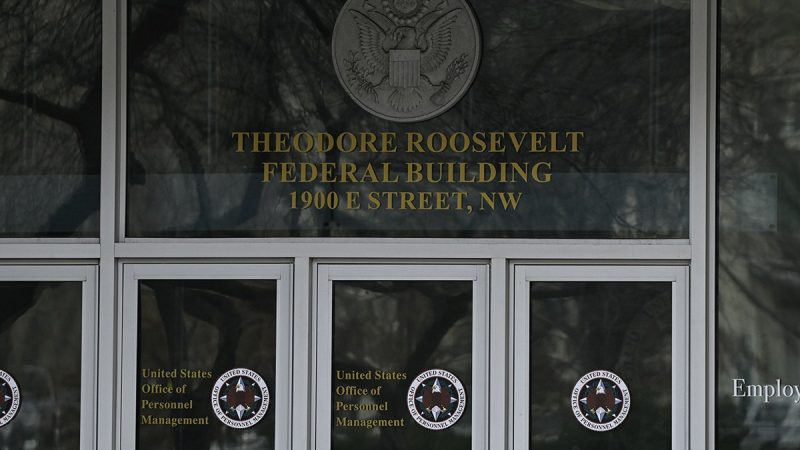
A federal judge has restricted the Department of Government Efficiency’s access to federal databases, citing a ‘breach of law and trust.’
Led by the American Federation of Government Employees, a group of current and former federal government employees and their unions in February sued the Office of Personnel Management (OPM) and DOGE for alleged ‘breach of privacy.’
U.S. District Judge Denise Cote of the Southern District of New York granted the plaintiffs’ April 25 motion for a preliminary injunction Monday, but said the scope of the injunction would be addressed in a separate order.
‘Following President Trump’s inauguration, OPM granted broad access to many of those systems to a group of individuals associated with the Department of Government Efficiency (‘DOGE’), even though no credible need for this access had been demonstrated. In doing so, OPM violated the law and bypassed its established cybersecurity practices,’ Cote wrote in a 99-page opinion on Monday.
‘In brief, the OPM records at issue concern the plaintiffs’ most sensitive private affairs,’ the opinion says. ‘They include social security numbers, health care information, banking information, and information about family members. For some people, disclosure of information in OPM systems could subject them to danger.’
An appointee of President Bill Clinton, Cotes said plaintiffs ‘have shown they are entitled to’ a preliminary injunction, which ‘would stop disclosure of OPM records to individuals associated with DOGE and require the destruction of any copies of personal information that have been obtained through such disclosure.’
‘The plaintiffs have shown that the defendants disclosed OPM records to individuals who had no legal right of access to those records,’ Cotes wrote. ‘In doing so, the defendants violated the Privacy Act and departed from cybersecurity standards that they are obligated to follow. This was a breach of law and of trust. Tens of millions of Americans depend on the Government to safeguard records that reveal their most private and sensitive affairs.’
The judge further criticized the Trump administration’s handling of OPM records.
‘The Government could have acknowledged that in its rush to accomplish a new President’s agenda mistakes were made and established, important protocols were overlooked. It has not,’ Cote wrote. ‘The Government has defended this lawsuit by repeatedly invoking a mantra that it adhered to all established procedures and safeguards. It did not. Without a full-throated recognition that the law and established cybersecurity procedures must be followed, the risk of irreparable harm will continue to exist.’
In a May hearing, Justice Department lawyers reportedly argued that any preliminary injunction granted should include exceptions for high-level OPM officials and cited how a separate judge had walked back initial restrictions placed on DOGE access to Treasury Department records in February so long as DOGE staffers have the appropriate training and vetting, according to the Federal News Network.
Justice Department lawyers filed a separate motion in the case on Friday, citing the Supreme Court’s latest decision related to DOGE access to Social Security Administration (SSA) records.
DOGE’s future remains uncertain amid a rocky public fallout between its former leader, tech billionaire Elon Musk, and President Donald Trump, though both men previously said they want the waste-cutting entity’s work to continue.
The Supreme Court handed the Trump administration two victories on Friday in cases involving DOGE, including giving it access to Social Security systems containing personal data on millions of Americans. The three liberal justices dissented in both cases.
The justices also separately reined in orders seeking transparency at DOGE.
In one case, the high court halted an order from a judge in Maryland that had restricted the team’s access to the SSA under federal privacy laws.
The Trump administration says DOGE needs access to carry out its mission of targeting waste in the federal government. Musk had been focused on Social Security as an alleged hotbed of fraud. The entrepreneur has described it as a ‘Ponzi scheme’ and insisted that reducing waste in the program is an important way to cut government spending.
But U.S. District Judge Ellen Hollander in Maryland found that DOGE’s efforts at Social Security amounted to a ‘fishing expedition’ based on ‘little more than suspicion’ of fraud, and allowing unfettered access puts Americans’ private information at risk.
Her ruling did allow access to anonymous data for staffers who have undergone training and background checks, or wider access for those who have detailed a specific need.
The Trump administration has said DOGE cannot work effectively with those restrictions.
U.S. Solicitor General D. John Sauer also argued that the ruling is an example of federal judges overstepping their authority and trying to micromanage executive branch agencies.
The Associated Press contributed to this report.






